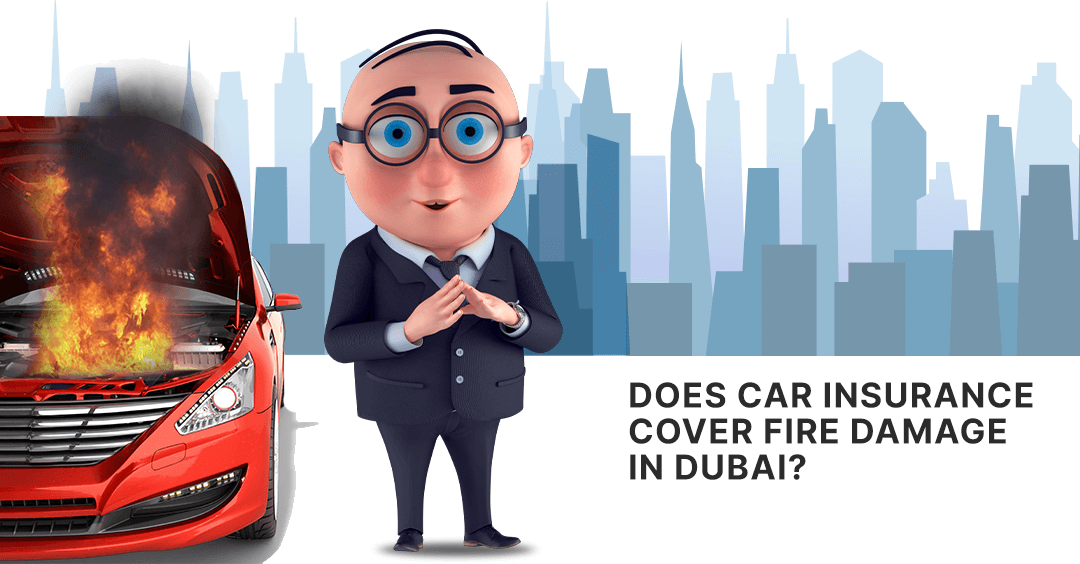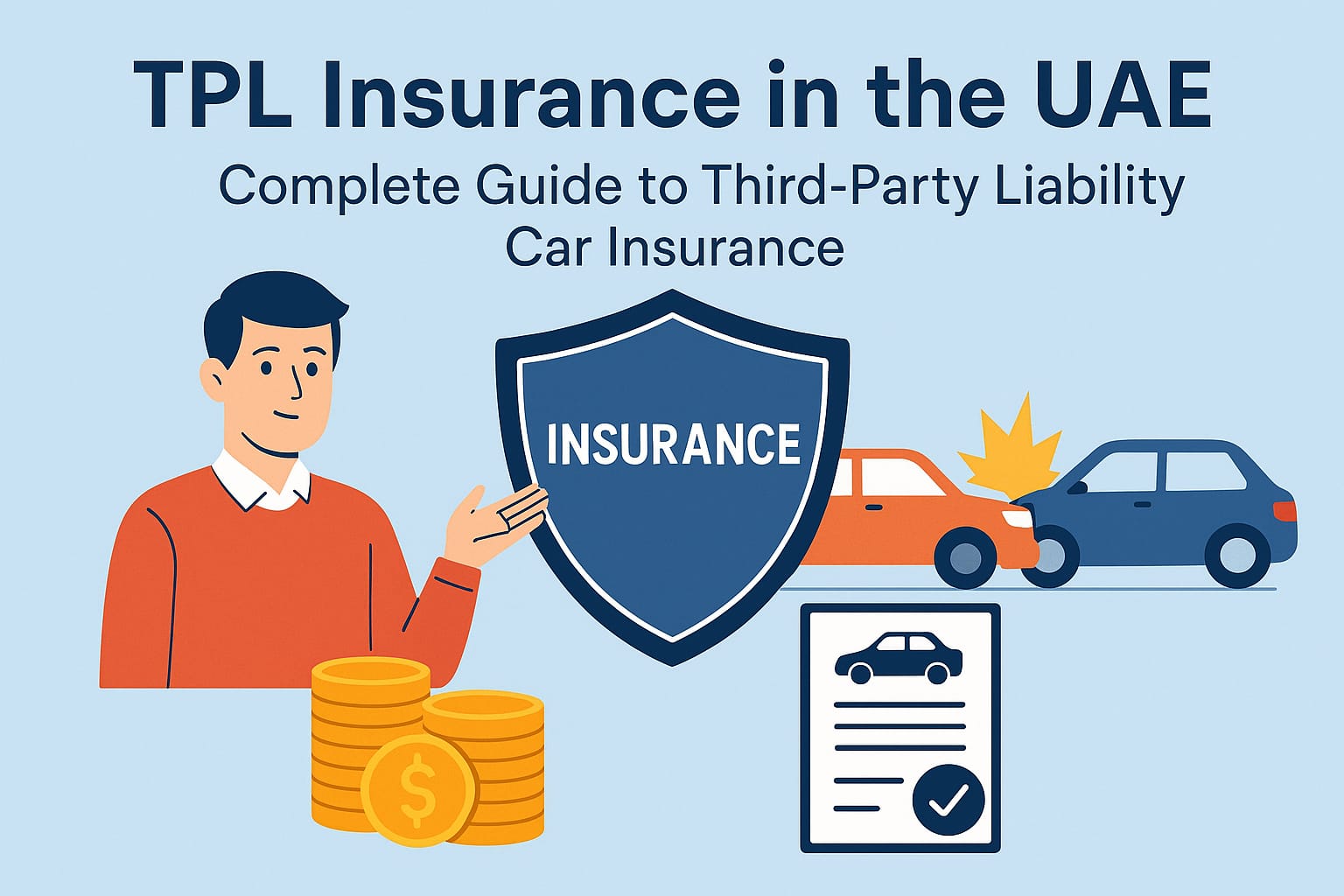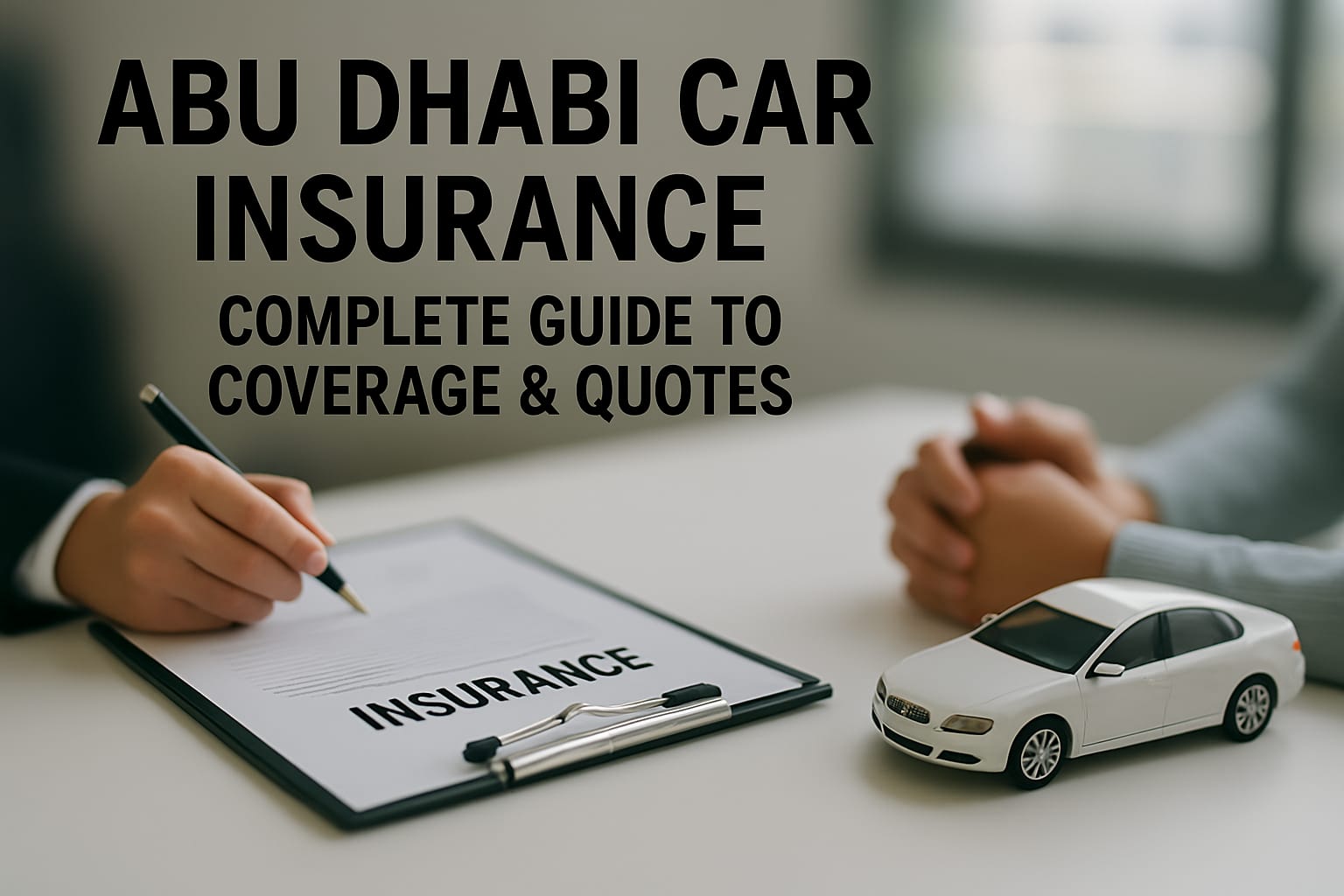Without doubt, Dubai is one of the hottest places on the planet, especially in those hot and humid summer months when the temperatures make you feel like the air is on fire. And talking of fire, the risk of it happening is heightened in the summer months too.
News of fatal fires hit the headlines, but what about those caused by daily driving? Does insurance cover those? This blog delves into car insurance coverage in more detail and tackles this pressing topic.
It depends on the policy.
Remember that only comprehensive car insurance covers damage to your own vehicle. This means that if your cover is Third Party Liability only, which is the minimum car insurance requirement in Dubai, you won’t be covered for such damage, unless in exceptional circumstances (explained later in this blog).
It depends on the situation.
If your car catches fire because of an accident, then the damage will be covered under the collision aspect of your insurance. If the third party is at fault, then their policy will be responsible for paying for the damage. If you were at fault, then your comprehensive insurance will cover you.
Suppose your car catches fire for a reason not related to an auto accident, such as a lightning strike or overheating (spontaneous combustion). In that case, again, your comprehensive car insurance policy should cover the damage.
It’s something you can help reduce the risk of
Spontaneous combustion claims are not uncommon in the searing summer temperatures in Dubai. Mechanical movements within car engines and auto electrics, such as air conditioning systems, in-car entertainment and the various switches that power dashboard displays all generate heat and sparks, and when coupled with the outside ambient temperature, can cause vehicles to overheat and catch fire. It’s therefore vital to keep your vehicle well-maintained, check coolant levels regularly, and have your air-conditioning and other systems serviced at frequent intervals. You may also want to reconsider your driving habits during the hottest summer months. Taking public transportation, working from home (if possible), or avoiding non-essential trips to the mall can also help. It’s about reducing, mitigating, or eliminating risk wherever possible.
It’s also important to do these things from an insurance perspective, as some policies have clauses stating that a vehicle must be well-maintained to ensure coverage is operative. Suppose your car is under a manufacturer’s warranty. In that case, this clause can also be vital for you to comply with, as failure to maintain your motor can lead to the invalidation of your warranty.
Car Fires: The Facts
The top three causes of vehicle fires are:
- Mechanical failure: Mechanical malfunctions are the leading cause of auto fires. Think faulty fuel lines, warped wiring, a bad battery or an ageing AC system that keeps shorting out.
- Collisions: If your vehicle has been involved in a crash, the damage sustained could cause engine oil, system coolants and other essential fluids to leak out, and these can become fuel for a fire. And here’s a scary statistic: data shows that accidents account for only 5% of car fires, but they are responsible for 63% of car fire deaths because the circumstances of the incident, such as injuries or damage sustained, can make exiting the vehicle difficult, and the delay or inability to get out can prove fatal.
- Poor maintenance: The older the vehicle, the more likely it is to have hidden wear and tear that could lead to mechanical or electrical failures.
What to do if your car catches fire
Car fires can be frightening and fatal, especially as they can engulf a vehicle in a matter of minutes. Should you ever find yourself in a car that catches fire, you should do the following:
- Pull over. Move your car to the side of the road and come to a complete stop.
- Shut off the engine. The engine must be turned off as this will stop the flow of fuel and switch off critical electrical components.
- Get out of and away from the car. You and your passengers should exit immediately. Please move to a place of safety at least 30 metres from the vehicle and don’t be tempted to return to it under any circumstances. Leaving your much-loved items behind might be important to you, but your safety is more important than any item.
- Call the emergency services on 999. Don’t rely on anyone else picking up the phone: if you can, dial the emergency services immediately. You have a liability to other road users and passersby, as well as a responsibility to protect yourself. Therefore, you want the fire to be contained and extinguished professionally and safely as a matter of urgency.







